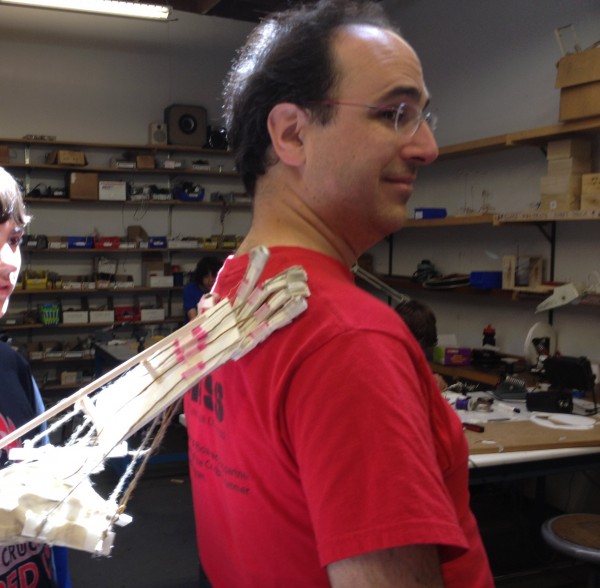Oh shit. I just got this email from City College:
I have come to appreciate City College tremendously. It’s a good place and fine place.
(07-03) 15:01 PDT SAN FRANCISCO — Beset by mismanagement and unable to persuade overseers that it had repaired extensive problems, City College of San Francisco will lose its accreditation a year from now and its elected Board of Trustees will be stripped of decision-making powers, the college learned Wednesday.
The decision by an accrediting commission allows the college of 85,000 students – one of the largest in the nation – to stay open until at least July 31, 2014.
City College is expected to appeal the decision. State law prohibits taxpayer funds from going to unaccredited institutions, so if the commission’s decision stands, the college would likely be forced to shut its doors.
The Accrediting Commission for Community and Junior Colleges is expected to install a state-appointed special trustee as head of the community college. The trustee, Robert Agrella, has been advising City College during its yearlong struggle to remain accredited and in business.
“It’s shocking and outrageous, given the massive changes we’ve made,” said John Rizzo, president of the City College Board of Trustees. “We’ve reorganized every level of the management structure, in every department. We’ve cut pay. We’ve funded the reserve for nine years.
“This is really bad for San Francisco.”
The stunning verdict makes City College only the second public community college in California ever to lose its accreditation. The first, Compton College, had its accreditation revoked in 2006. It was then absorbed into a neighboring community college district.
Students who attend an unaccredited institution are ineligible to receive federal or state financial aid, and their diplomas often mean little to employers seeking skilled employees.
The accrediting commission is a private, nonprofit agency, and one of six regional accrediting bodies overseen by the U.S. Department of Education. The commission that accredits community colleges in California has 19 voting members, mostly college chancellors, faculty and education experts, and is supported by dues from member colleges.
The commission placed City College on the most severe sanction a year ago and warned that it could lose its stamp of approval.
It cited a broken system of governance and fiscal planning in which a skeletal crew of administrators and bickering employees failed to make necessary budget cuts, even as state funding dried up. Over the years, the college constructed sparkling buildings while neglecting such basic needs as computers and campus maintenance, the commission said.
The commission gave City College eight months to show why it should remain accredited, a deadline that expired in March. The commission then spent the spring deciding whether the college had made significant steps toward fixing its problems.
So for a long, nail-biting year, college faculty, staff, administrators and even students worked to attack and repair every deficiency.
Thousands of people depend on City College for a leg up into the middle class. The school produces hundreds of paramedics, phlebotomists, restaurant workers, nurses, firefighters, police and more each year that keep the Bay Area’s economy humming.
Hundreds of other students earn credits for transfer to university, often the only way they can afford to attend college. The college is also a essential location for immigrants to learn English and for senior citizens to find intellectual stimulation through music and art, memoir-writing and useful classes like nutrition education.
With City College nearly bankrupt last fall, college officials persuaded voters to approve a parcel tax for the school that, combined with tax money from Proposition 30, put the school back in the game.
But money alone wasn’t the college’s problem.
College officials likened their repair efforts to changing tires on a speeding car.
They unilaterally cut pay and entered into battle with angry faculty in a labor dispute that has yet to be resolved.
They reorganized the management structure in every department, also in opposition to department chairs, many of whom would be required to give up leadership duties and return to the classroom. The dispute with the chairs’ union settled this spring.
To fix the college’s tangled decision-making structure, college trustees dismantled a decades-long system of faculty leadership over the strong objections of employees.
They eliminated a multi-headed hydra of 46 committees that, instead of facilitating decisions, often served to obstruct and control them, and replaced it with a more streamlined approach to “shared decision-making,” more like the concept embraced by colleges and universities nationwide.
They pumped up their reserves and established a nine-year fiscal plan.
But in the end, it wasn’t enough.



